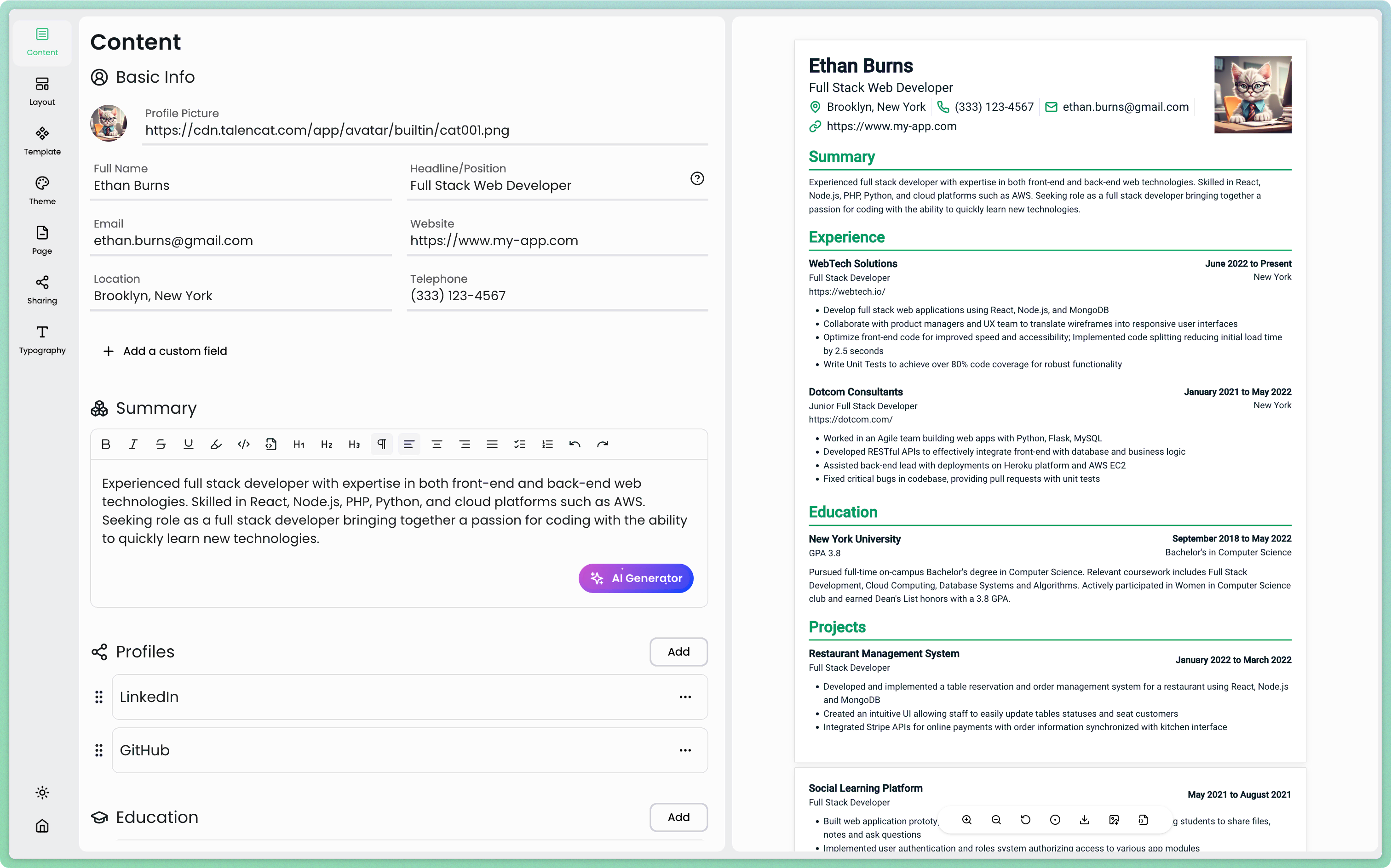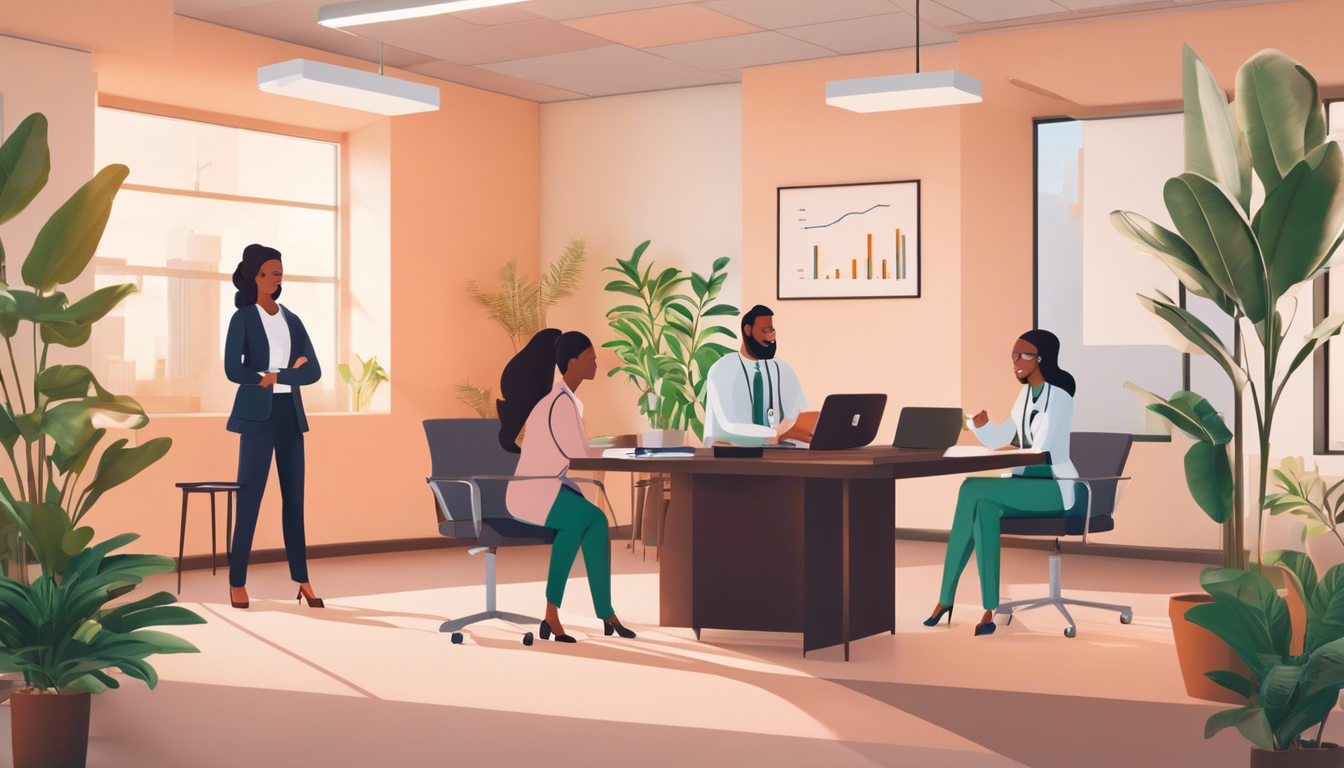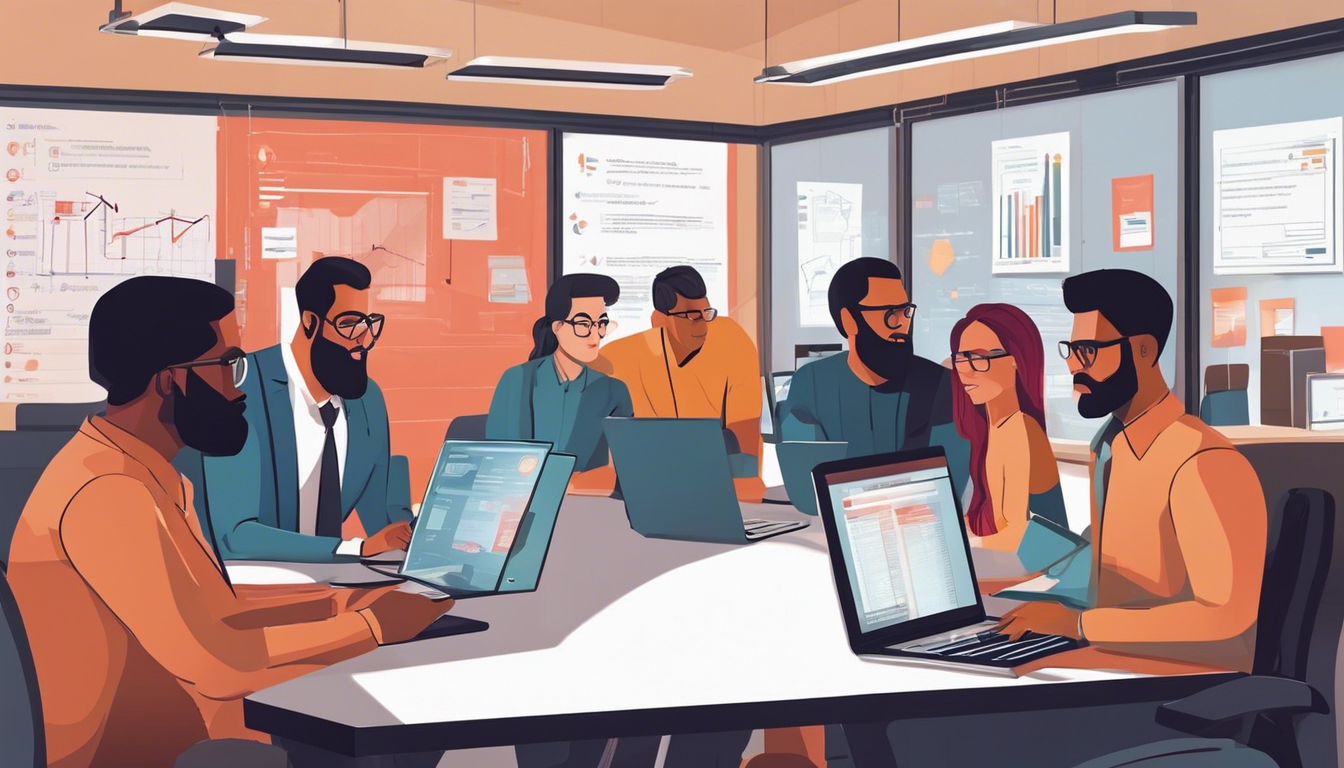Are you ready to take your career in the pharmaceutical industry to the next level? As the role of Medical Science Liaison (MSL) continues to grow in importance, mastering the interview process is crucial for securing your dream position. This comprehensive guide will walk you through everything you need to know about MSL interviews, from common questions to expert tips for success. Whether you're a seasoned professional looking to transition into an MSL role or a newcomer to the field, this article will equip you with the knowledge and confidence to excel in your interview and launch your career as a Medical Science Liaison.
Introduction to Medical Science Liaison (MSL) Interviews
The Medical Science Liaison role has become an integral part of the pharmaceutical industry, serving as a bridge between scientific research and clinical practice. As companies increasingly recognize the value of MSLs in building relationships with key opinion leaders and disseminating complex scientific information, the demand for skilled professionals in this field continues to grow.
Importance of MSL Role in the Pharmaceutical Industry
Medical Science Liaisons play a crucial role in the pharmaceutical industry by:
- Providing scientific expertise to healthcare professionals
- Building and maintaining relationships with key opinion leaders
- Supporting clinical trials and research initiatives
- Communicating complex scientific information to various stakeholders
- Gathering valuable insights from the field to inform product development and marketing strategies
Given the significance of this role, companies are meticulous in their selection process, making the interview a critical step for aspiring MSLs.
Overview of the Interview Process for MSL Positions
The interview process for MSL positions typically involves multiple stages, including:
- Initial phone or video screening
- In-person interviews with hiring managers and team members
- Scientific presentations or case studies
- Panel interviews with cross-functional teams
Throughout these stages, candidates are evaluated on their scientific knowledge, communication skills, ability to build relationships, and understanding of the pharmaceutical industry.
Common Medical Science Liaison Interview Questions
Preparing for common interview questions is essential for success in your MSL interview. Let's explore some of the most frequently asked questions and expert insights on how to answer them effectively.
General MSL Interview Questions
What is your understanding of the MSL role?
Sample Question: "Can you describe your understanding of the Medical Science Liaison role and its importance in the pharmaceutical industry?"
Expert Answer: The Medical Science Liaison role is a critical function that bridges the gap between scientific research and clinical practice. As an MSL, I would be responsible for establishing and maintaining relationships with key opinion leaders, providing scientific expertise to healthcare professionals, and supporting clinical trials. The role requires a deep understanding of medical science, excellent communication skills, and the ability to translate complex scientific information into actionable insights for various stakeholders. MSLs play a vital role in enhancing the credibility of pharmaceutical companies and ensuring that healthcare professionals have access to the most up-to-date and accurate information about medical products and treatments.
Why do you want to transition to a Medical Science Liaison position?
Sample Question: "What motivates you to pursue a career as a Medical Science Liaison?"
Expert Answer: My passion for science and desire to make a meaningful impact on patient care are the primary drivers behind my interest in becoming a Medical Science Liaison. This role allows me to leverage my scientific expertise while also developing strong relationships with healthcare professionals. I'm excited about the opportunity to be at the forefront of medical advancements and to play a crucial role in disseminating cutting-edge scientific information. The dynamic nature of the MSL role, which combines scientific knowledge, communication skills, and strategic thinking, aligns perfectly with my career aspirations and personal strengths.
What motivates you to work in the pharmaceutical industry?
Sample Question: "Why are you interested in working in the pharmaceutical industry, specifically?"
Expert Answer: The pharmaceutical industry's potential to improve and save lives on a global scale is what draws me to this field. I'm motivated by the opportunity to contribute to the development and dissemination of innovative treatments that can make a real difference in patients' lives. The industry's commitment to scientific excellence, coupled with its fast-paced and ever-evolving nature, provides an exciting and challenging environment that aligns with my professional goals. Additionally, I'm inspired by the collaborative nature of the industry, where professionals from diverse backgrounds come together to tackle complex medical challenges.
Behavioral Interview Questions
Behavioral questions are designed to assess how you've handled situations in the past, providing insight into your problem-solving skills, teamwork abilities, and overall approach to work.
Describe a challenging situation you faced in a previous role and how you handled it.
Sample Question: "Can you tell me about a time when you faced a significant challenge in your work and how you overcame it?"
Expert Answer: In my previous role as a clinical researcher, we encountered unexpected delays in patient recruitment for a critical study. This threatened to derail our timeline and budget. I took the initiative to analyze our recruitment strategy and identified several areas for improvement. I proposed and implemented a multi-faceted approach, including partnering with additional clinical sites, refining our inclusion criteria, and enhancing our patient outreach methods. By closely monitoring our progress and making real-time adjustments, we were able to get the recruitment back on track. This experience taught me the importance of adaptability, creative problem-solving, and proactive communication in managing complex projects.
Can you provide an example of a time you worked with a cross-functional team?
Sample Question: "Describe a situation where you had to collaborate with colleagues from different departments to achieve a common goal."
Expert Answer: In my role as a research scientist, I was part of a cross-functional team tasked with developing a new drug formulation. The team included members from R&D, clinical affairs, regulatory, and marketing. Initially, we faced challenges in aligning our objectives and timelines due to differing priorities. To address this, I organized regular team meetings and established a shared project management tool to improve communication and transparency. I also took the initiative to learn about each department's specific needs and constraints, which helped me facilitate more productive discussions. By fostering open dialogue and finding creative compromises, we were able to develop a formulation that met both scientific and market requirements, ultimately leading to a successful product launch.
How do you manage your time and prioritize tasks in a fast-paced environment?
Sample Question: "How do you handle multiple competing priorities in your work?"
Expert Answer: In fast-paced environments, effective time management is crucial. I start by clearly understanding the objectives and deadlines for each task. I use a combination of digital tools and traditional methods to organize my work, including a detailed calendar and task management system. I prioritize tasks based on their urgency and importance, focusing on high-impact activities that align with key objectives. I'm also a firm believer in the importance of flexibility, as priorities can shift quickly in the pharmaceutical industry. Regular check-ins with my team and stakeholders help me stay aligned with evolving priorities. Additionally, I've found that blocking out focused work time and setting realistic expectations about turnaround times helps me maintain productivity without compromising quality.
Technical and Scientific Knowledge Questions

Technical and scientific knowledge questions are designed to assess your expertise in your field and your ability to communicate complex information effectively.
Explain a complex scientific concept to a non-scientific audience.
Sample Question: "Can you explain the concept of immunotherapy to someone without a scientific background?"
Expert Answer: Certainly. Imagine your body's immune system as a highly trained security team protecting a valuable building – your body. Normally, this security team is excellent at identifying and removing threats, like viruses or harmful bacteria. However, cancer cells are tricky – they're like intruders who have disguised themselves to look like regular employees of the building. Immunotherapy is like giving your security team special glasses that allow them to see through these disguises. It helps your immune system recognize cancer cells for what they really are, enabling it to target and eliminate them more effectively. This approach is exciting because it uses your body's natural defenses to fight cancer, often with fewer side effects than traditional treatments like chemotherapy.
How do you stay updated with the latest research and developments in your field?
Sample Question: "What strategies do you use to keep abreast of new developments in medical science?"
Expert Answer: Staying current with the latest research is a critical part of the MSL role. I employ a multi-faceted approach to ensure I'm always up-to-date. First, I regularly review leading scientific journals in my field and have set up alerts for new publications on key topics. I also attend relevant conferences and webinars, which provide opportunities to learn about cutting-edge research directly from experts. Additionally, I'm an active member of professional associations, which offer valuable resources and networking opportunities. I find that engaging in discussions with colleagues and participating in journal clubs helps deepen my understanding of new developments. Lastly, I make use of reputable online platforms and databases to access the most recent clinical trial data and regulatory updates.
Discuss a recent clinical trial you found interesting and why.
Sample Question: "Can you tell me about a recent clinical trial that caught your attention and explain its significance?"
Expert Answer: Recently, I was particularly intrigued by the results of the CRISPR-Cas9 gene editing trial for sickle cell disease and beta-thalassemia. This trial used CRISPR technology to edit patients' own stem cells to produce fetal hemoglobin, effectively alleviating symptoms of these blood disorders. What makes this trial so significant is that it represents one of the first successful applications of gene editing technology in humans for treating genetic diseases. The results showed remarkable improvements in patients' quality of life and reduced need for blood transfusions. This trial not only demonstrates the potential of gene editing as a therapeutic approach but also opens up possibilities for treating other genetic disorders. It's a prime example of how cutting-edge scientific research can translate into life-changing treatments for patients.
Situational and Role-Specific Questions
Situational questions help interviewers assess how you might handle specific scenarios you're likely to encounter as an MSL.
How would you approach a healthcare professional who is skeptical of your product?
Sample Question: "A key opinion leader in your territory is hesitant to consider your company's new treatment. How would you handle this situation?"
Expert Answer: When faced with a skeptical healthcare professional, my approach would be to first listen carefully to understand their specific concerns or reservations. I would acknowledge their perspective and then focus on providing clear, evidence-based information about the product. I'd share relevant clinical data, addressing their specific concerns, and if possible, provide real-world evidence or case studies that demonstrate the product's efficacy and safety profile. I would also offer to connect them with other experts who have experience with the treatment. Throughout the interaction, I'd maintain a respectful and professional demeanor, emphasizing my role as a scientific resource rather than a salesperson. If needed, I'd suggest follow-up meetings to provide additional information or address any new questions that arise. The goal would be to build trust and credibility over time through consistent, transparent, and scientifically sound communication.
What strategies would you employ to build relationships with key opinion leaders (KOLs)?
Sample Question: "How would you go about establishing and maintaining relationships with key opinion leaders in your field?"
Expert Answer: Building relationships with KOLs requires a strategic and personalized approach. First, I would thoroughly research each KOL's areas of expertise, recent publications, and current research interests. This allows me to engage in meaningful, relevant conversations from the outset. I would seek opportunities to meet KOLs at scientific conferences or professional events, introducing myself and expressing genuine interest in their work. Regular follow-ups with valuable scientific information, updates on relevant clinical trials, or invitations to speak at company-sponsored events can help strengthen these relationships. It's crucial to be responsive to their inquiries and proactively offer support for their research or educational initiatives when appropriate. I would also aim to facilitate connections between KOLs and other experts in the field, positioning myself as a valuable resource. Throughout this process, maintaining scientific integrity, respecting their time, and focusing on mutual scientific interests rather than product promotion is key to building long-lasting, trust-based relationships.
How would you handle a situation where a competitor has a strong presence in a specific territory?
Sample Question: "You've been assigned to a territory where a competitor's product is well-established. What would be your strategy to gain traction for your company's treatment?"
Expert Answer: In a territory dominated by a competitor, my strategy would focus on differentiation and value-added engagement. First, I'd conduct a thorough analysis of the competitor's product, understanding its strengths and limitations. I'd then identify key differentiators of our product, focusing on unique benefits or addressing unmet needs. My approach would involve engaging healthcare professionals with high-quality scientific information, emphasizing areas where our product offers advantages or complements existing treatments. I'd seek opportunities to present new data or insights that might not be widely known, potentially through organizing scientific symposia or one-on-one discussions with key opinion leaders. Additionally, I'd work closely with our clinical and medical affairs teams to identify opportunities for investigator-initiated studies that could generate territory-specific data. Building strong relationships with healthcare providers by being a reliable scientific resource, regardless of their current prescribing habits, would be crucial. The goal would be to gradually establish our product as a valuable treatment option through consistent, scientifically-driven engagement and support.
TalenCat: Master Medical Science Liaison Interview Questions
Preparing for a medical science liaison (MSL) interview can be challenging, but with TalenCat CV Maker, you can streamline your preparation process and gain valuable insights into potential interview questions. This AI-powered online resume builder offers a unique "Interview Assistant" feature that can help you navigate through MSL-specific interview questions derived from your resume content.
Here's how to use TalenCat CV Maker to prepare for your medical science liaison interview:
Step 1: Sign up or log in to TalenCat CV Maker. Create a new resume tailored for the medical science liaison position or upload your existing MSL resume.
Step 2: Navigate to the "AI Assistant" section and select "Interview Assistant" from the left-side menu. This will initiate the AI analysis of your MSL resume content.

Step 3: Click "Analyze Now" to generate potential interview questions based on your MSL resume content. The AI will consider your experience, skills, and qualifications specific to the medical science liaison role.

Step 4: Review the generated questions and use them to prepare for your MSL interview. These questions will likely cover topics such as your scientific knowledge, communication skills, and experience in the pharmaceutical or biotechnology industry.
Step 5: Utilize TalenCat CV Maker's AI-powered resume editor to refine your MSL resume further, ensuring it highlights your most relevant experiences and skills.

By leveraging TalenCat CV Maker's Interview Assistant, you can anticipate and prepare for a wide range of medical science liaison interview questions. This preparation will help you showcase your expertise, communication skills, and suitability for the MSL role during your interview.
Remember, the key to a successful medical science liaison interview lies in thorough preparation. TalenCat CV Maker provides you with the tools to create a standout resume and the insights to ace your interview questions, giving you a competitive edge in your MSL career journey.
Questions to Ask During the Interview
Insightful Questions Candidates Can Pose to Hiring Managers
How do you measure the success of an MSL in your organization?
Sample Question: "Could you elaborate on the key performance indicators used to evaluate the effectiveness of MSLs in your company?"
Expert Answer: This question shows that you're thinking critically about how to excel in the role. The answer can provide insights into the company's priorities and how they view the MSL function. It may also reveal information about the company's approach to metrics and performance evaluation, which can help you understand what to focus on if you get the position.
What are the biggest challenges currently facing the MSL team?
Sample Question: "In your view, what are the most significant challenges or opportunities that the MSL team is currently addressing?"
Expert Answer: This question demonstrates your strategic thinking and desire to understand the broader context of the role. The response can give you valuable insights into the current state of the team and the company's priorities. It also allows you to consider how your skills and experience might be applied to address these challenges.
Can you describe the company culture and how the MSL team fits within it?
Sample Question: "How would you characterize the company culture, and how does the MSL team contribute to and reflect this culture?"
Expert Answer: Understanding the company culture is crucial for assessing whether you'll be a good fit for the organization. This question shows that you're thinking beyond just the job description and are interested in the overall work environment. The answer can provide insights into the company's values, work style, and how the MSL team interacts with other departments.
Tips for Preparing for an MSL Interview
Researching the Company and its Products
Before your interview, conduct in-depth research on the company, including:
- Its history, mission, and values
- Current product portfolio and pipeline
- Recent news and press releases
- Competitive landscape in the therapeutic areas of interest
This knowledge will demonstrate your genuine interest in the company and help you tailor your responses to align with the organization's goals and culture.
Practicing Common Interview Questions
While you can't predict every question you'll be asked, practicing responses to common MSL interview questions can help you feel more confident and articulate during the actual interview. Consider:
- Recording yourself answering questions to review your delivery
- Conducting mock interviews with a friend or mentor
- Preparing concise examples that highlight your relevant experiences and skills
Remember to focus on clear communication and the ability to translate complex scientific concepts into understandable language.
Understanding the Role of an MSL in Detail
To excel in your interview, it's crucial to have a comprehensive understanding of the MSL role, including:
- Key responsibilities and day-to-day activities
- The importance of relationship-building with healthcare professionals and key opinion leaders
- Compliance regulations and ethical considerations in the pharmaceutical industry
- The evolving nature of the MSL role in response to industry trends
Demonstrating this knowledge will show the interviewer that you have a realistic understanding of the position and are prepared for its challenges and opportunities.
Conclusion
Final Thoughts on MSL Interviews
Securing a position as a Medical Science Liaison is a significant achievement that can lead to a rewarding career in the pharmaceutical industry. The interview process, while challenging, is an opportunity to showcase your scientific expertise, communication skills, and passion for advancing medical knowledge.
Remember that success in an MSL interview goes beyond just answering questions correctly. It's about demonstrating your ability to build relationships, communicate complex information effectively, and contribute to the company's mission of improving patient care through scientific advancement.
Encouragement for Candidates Preparing for Interviews
As you prepare for your MSL interview, stay confident in your abilities and the unique perspective you bring to the role. Your combination of scientific knowledge, interpersonal skills, and genuine enthusiasm for the field sets you apart as a candidate.
Approach the interview as an opportunity to engage in meaningful scientific dialogue and to learn more about the company and role. Your preparation and authentic passion for the field will shine through, positioning you as a strong candidate for this exciting and impactful career.
With thorough preparation and a positive mindset, you're well on your way to excelling in your MSL interview and taking the next step in your professional journey. Good luck!




